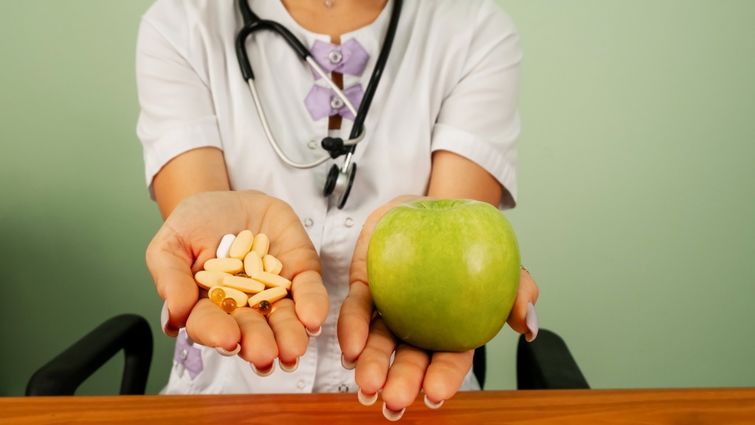
Edward K. Bitok breaks down whether consuming secondary vitamins are truly beneficial.
Health-conscious fads flow through society just as any other social trend. Studies show buying pricey vitamin and mineral supplements is on the social rise by 51.2%, but are they necessary for your body? Adopting a diet that includes the appropriate intake of micronutrients is essential and suggested by Edward K. Bitok, DrPH, MS, RDN, program chair of nutrition and dietetics at the School of Allied Health Professions at Loma Linda University.
Some individuals need to increase their intake of certain vitamins and minerals due to medical conditions or deficiencies and can only achieve the required levels through supplementation. For most, a broad, healthy diet will provide the outcomes sought from over-the-counter (OTC) vitamins. Bitok says some OTC dietary supplements do not contain what they purport to have and are therefore inferior and a waste of money.
Nutrient-rich foods have complex relationships, some of which are yet to be discovered. Somehow, these nutrients and non-nutrients work mysteriously in a way that is beneficial to health. Supplements on the other hand are processed concentrations lacking this complex relationship and components.
“Hence, it only makes sense that we eat food,” Bitok says. “Humans were created to eat food, not to consume supplements.”
This or that?
Popular vitamins like calcium, vitamin D, and fish oil can all be found in food. Bitok brakes down how each is beneficial to the body and provides food alternatives to buying and consuming supplements.
Calcium typically works together with Vitamin D. Bone loss in older individuals leaves them susceptible to fractures.
Food sources: green leafy vegetables, fortified breakfast cereal, milk and milk products, fortified milk alternatives, beverages, etc
Vitamin D is not only required for strong bones but can prevent some cancers and support the immune system. Luckily, the sun acts as the best source of Vitamin D. For most people, twenty minutes of sun exposure, twice a week, between the hours of 10 a.m. and 4 p.m. will supply the body with sufficient Vitamin D.
“Surprisingly, many people are vitamin D deficient because of staying indoors, using sunscreen, and of-course inadequate intake from foods,” Bitok says.
Food sources: Vitamin D fortified milk, fortified breakfast cereals, egg yolks, mushrooms, fortified orange juice, fatty fish, among others.
Fish oil contains fatty acids that play a role in growth and development, brain and immune function, heart health, cancer prevention, and many others. Studies show fish oil has been associated with a 13% lower risk of mortality.
Non-vegetarian food sources: fatty fish such as salmon, cod, sardines, and mackerel are rich in omega-3 fatty acids.
Vegetarian food sources: flaxseeds, chia seeds, walnuts, and canola oil are rich in alpha-linolenic acid, the plant version of omega-3.
Can taking too many supplements have negative effects on your body?
“Routine overload is not advised,” Bitok says.
Side effects can include nausea, diarrhea, and stomach discomforts, but unsafe interactions with prescription medication can also arise if not taken responsibly. Certain vitamins and minerals can change the absorption, metabolism, or excretion of a medication hence affecting its effectiveness. It’s essential to consult with a doctor before adding any dietary supplements to your regimen, Bitok says.
For more information on what nutrient-rich foods or supplements may be beneficial for your health, make an appointment with a Loma Linda University Health primary care provider on MyChart.
